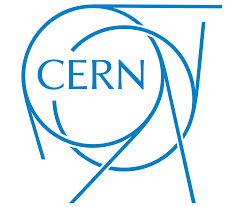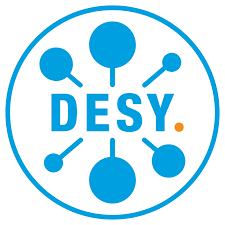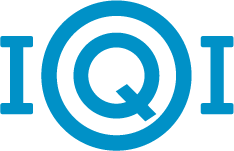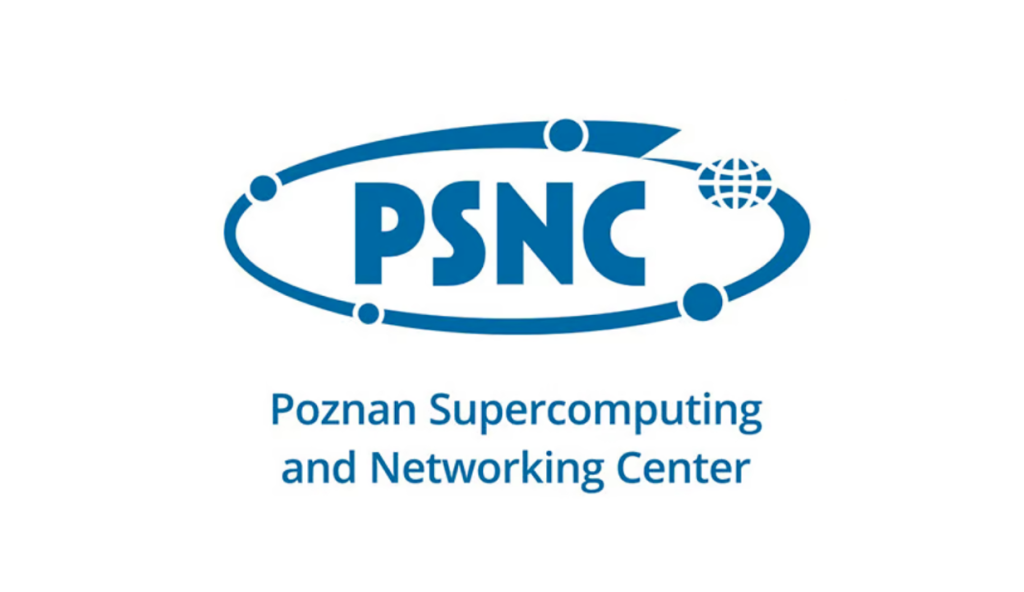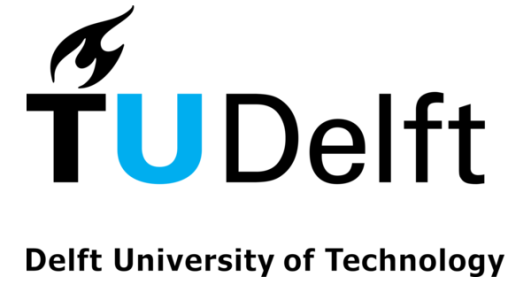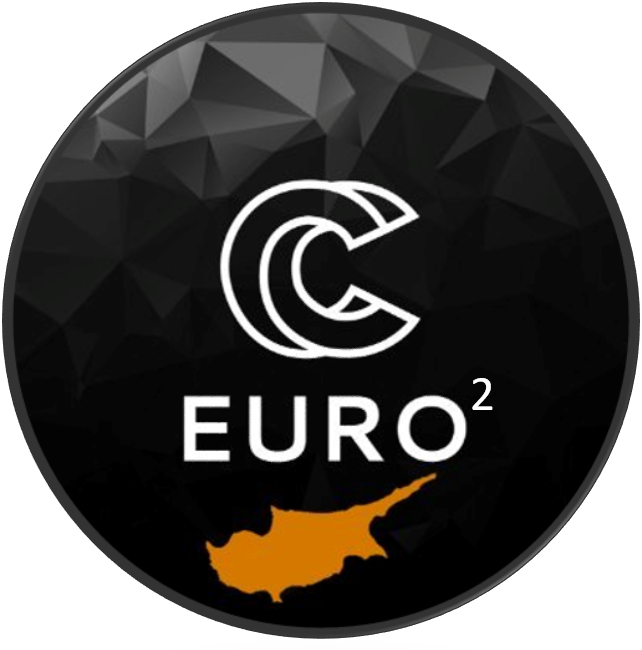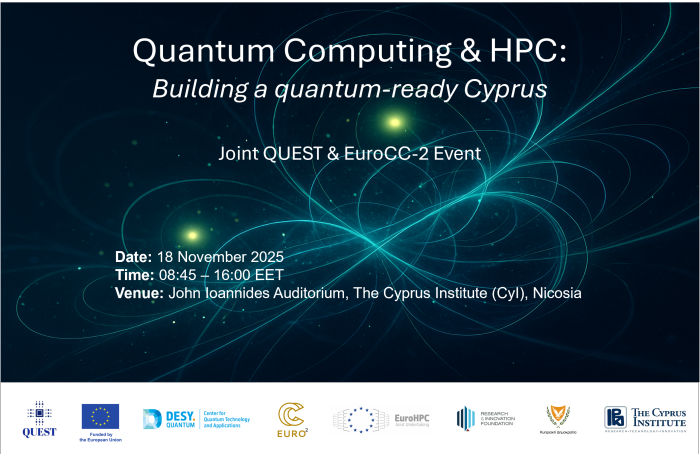
The Cyprus Institute Hosts Workshop on Advancing Quantum and High-Performance Computing in Cyprus
The Cyprus Institute hosted a major workshop titled “Quantum Computing and HPC: Building a Quantum-Ready Cyprus” on November 18, 2025, bringing together leading international experts, national stakeholders, and members of the research community to explore the emerging landscape of quantum technologies and their integration with high-performance computing.
The event took place at The Cyprus Institute’s facilities in Aglantzia and was jointly organized by the ERA Chair project QUEST: Quantum Computing for Excellence in Science and Technology and the EuroHPC Joint Undertaking project EUROCC-2. As the National Competence Center for High-Performance Computing, The Cyprus Institute continues to serve as a central hub for the adoption and development of advanced computing technologies in Cyprus.
The workshop opened with welcome addresses by Prof. Constantine Dovrolis, Director of CaSToRC, and Prof. Stavros Malas, President of The Cyprus Institute, who emphasized the need for Cyprus to prepare strategically for the coming era of quantum-enhanced research and innovation. Their remarks set the tone for a full day of scientific presentations highlighting recent breakthroughs and ongoing challenges at the intersection of quantum and classical computing.
Prof. Enrique Rico Ortega delivered the first keynote talk, presenting pioneering work on real-time gauge-theory dynamics using a superconducting quantum processor capable of operating with up to 144 qubits. His presentation demonstrated how quantum simulation can probe complex physical phenomena such as confinement and string fragmentation, pushing the limits of current quantum hardware. This was followed by Prof. Karl Jansen, who offered an overview of quantum computing activities within the QUEST and CQTA projects, spanning fields such as condensed matter physics, high-energy physics, quantum machine learning, classical optimization, cryptography, and even quantum-inspired art.
Dr. Kostas Blekos provided an accessible and evidence-driven assessment of what today’s quantum processors can realistically contribute to scientific workflows, highlighting both their present capabilities and the technological milestones needed to achieve practical quantum advantage. Continuing the theme of emerging quantum applications, Dr. Eleni Agathocleous explored the transition from classical cryptography to quantum-secure methods, focusing on the mathematical structures that underpin post-quantum cryptography and the role of isogeny-based systems in future security architectures.
The afternoon session examined the development of hybrid computing strategies that combine quantum and classical resources. Dr. Savvas Varsamopoulos discussed approaches for building scalable hybrid quantum workflows by integrating algorithmic innovation, hardware–software co-design, and machine learning techniques. Dr. Torsten Zache then presented recent progress in probing confinement and string-breaking phenomena using Rydberg-atom quantum simulators, showcasing a successful collaboration with QuEra’s “Aquila” system.
Further expanding the national perspective, Dr. Mariella Minder provided an overview of the Cyprus Quantum Communication Infrastructure (CYQCI) project and its role within the broader EuroQCI initiative. She outlined how Cyprus is working to establish a secure, quantum-enabled communication network connecting key governmental, research, and industrial sites. The final presentation, delivered by Dr. Krzysztof Kurowski, highlighted Poland’s efforts to integrate HPC, AI, and quantum technologies through the PIONIER-Q initiative and discussed lessons that can inform similar developments across Europe.
The workshop concluded with a panel discussion on the challenges and opportunities associated with quantum technologies, moderated by Dr. Andreas Athenodorou and featuring several of the day’s speakers. Throughout the event, participants were also invited to explore a poster session showcasing research in quantum simulation, hybrid algorithms, and quantum communication.
This initiative, supported by the European Union through the EuroHPC and ERA Chair programs, marks a significant step toward strengthening Cyprus’s capacity in next-generation computing. The event fostered meaningful dialogue, expanded collaboration opportunities, and contributed to shaping a coordinated national vision for a quantum-ready future.
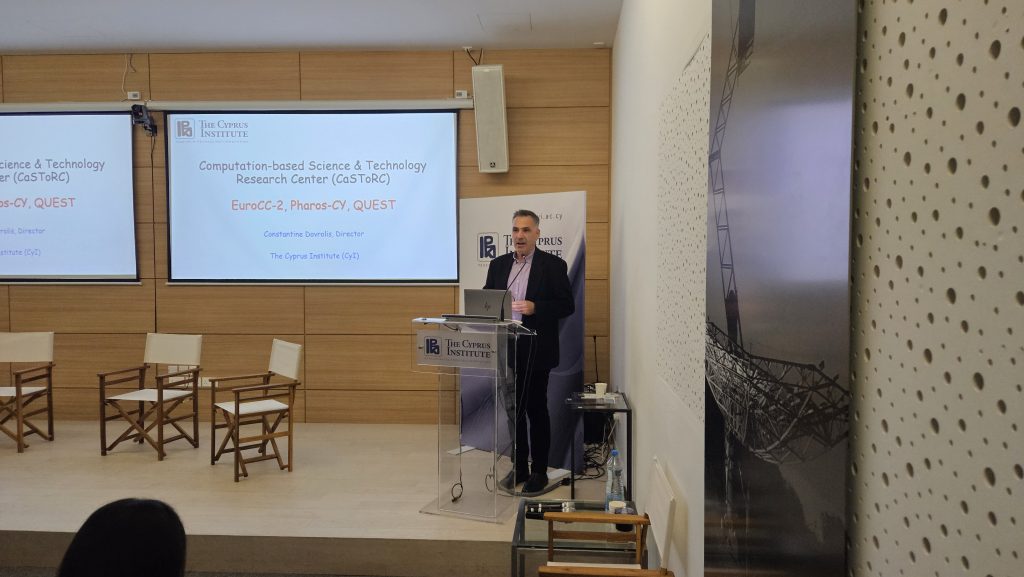
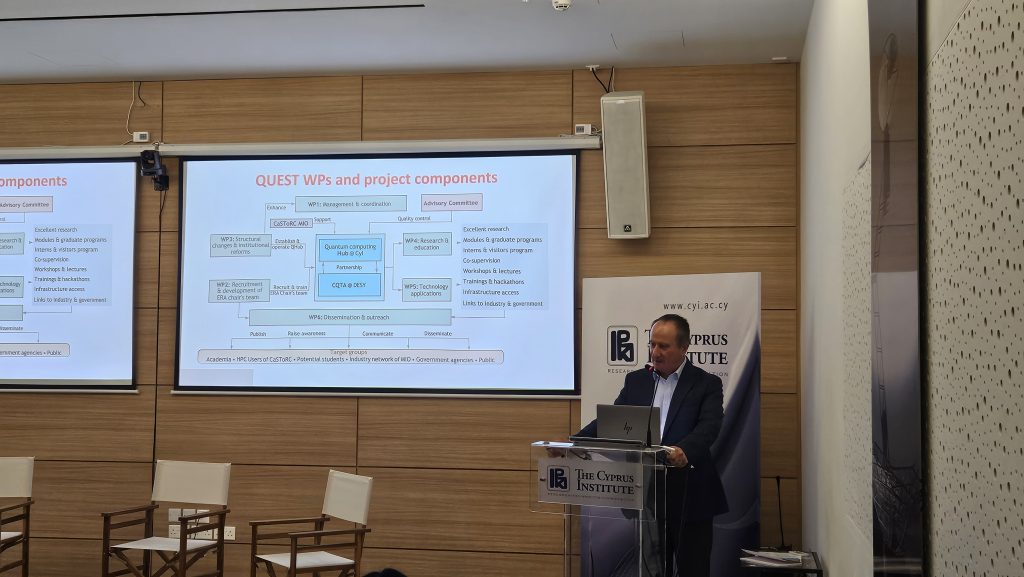
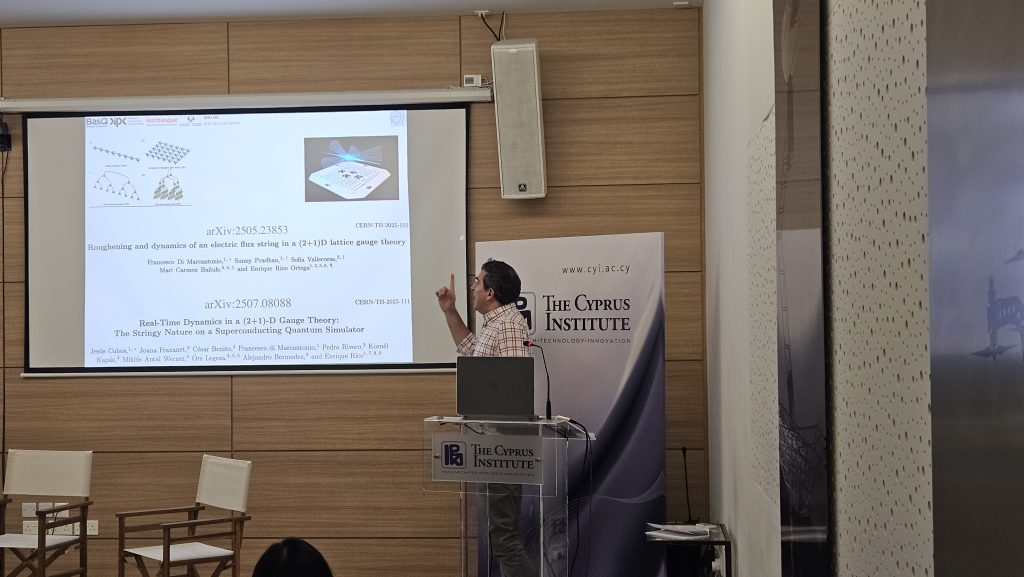
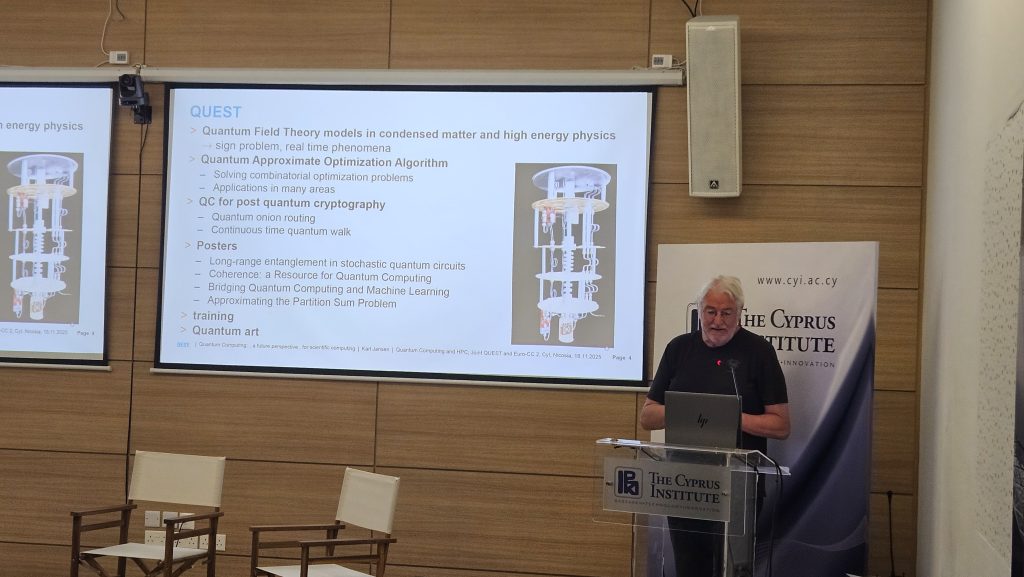
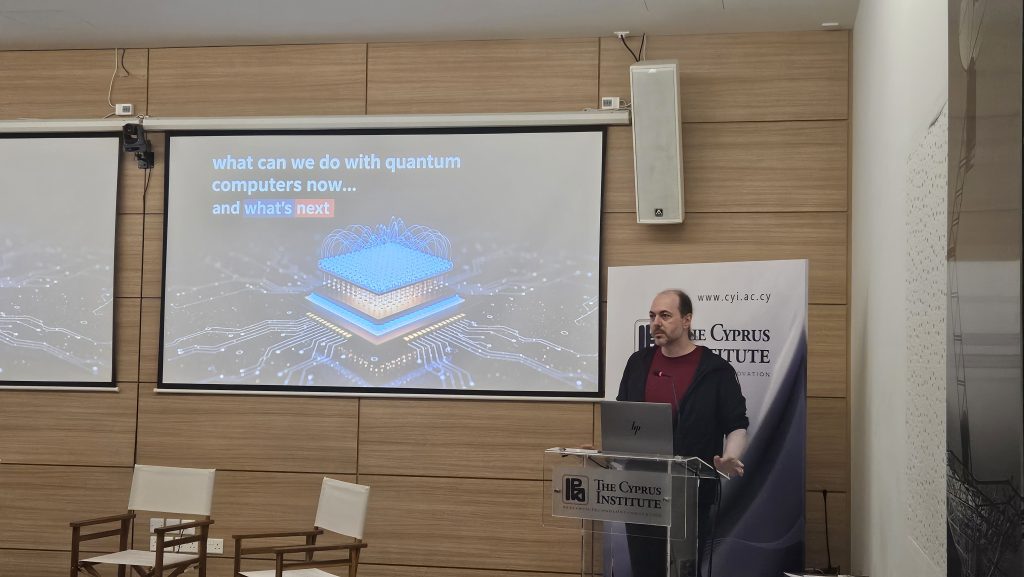
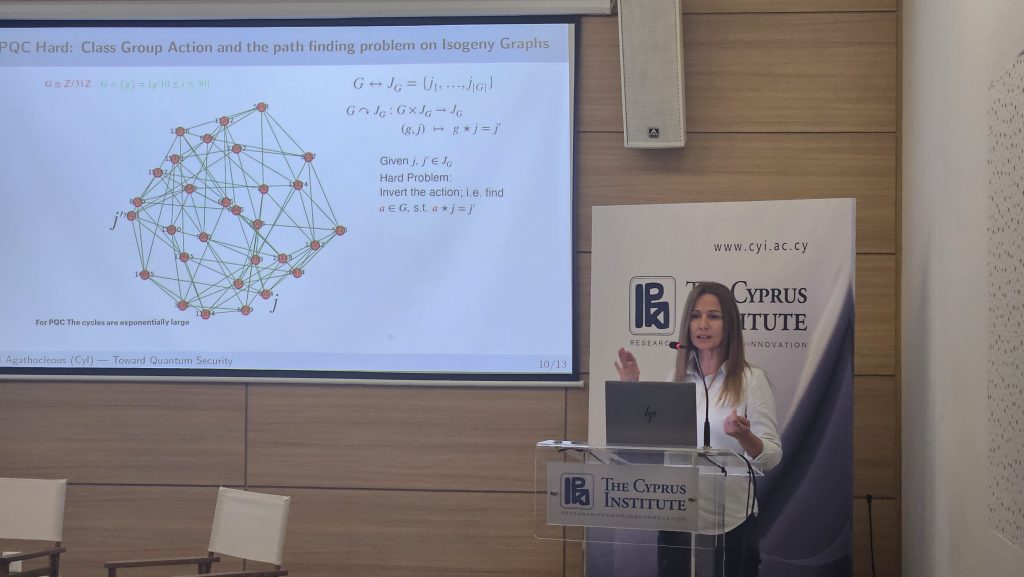
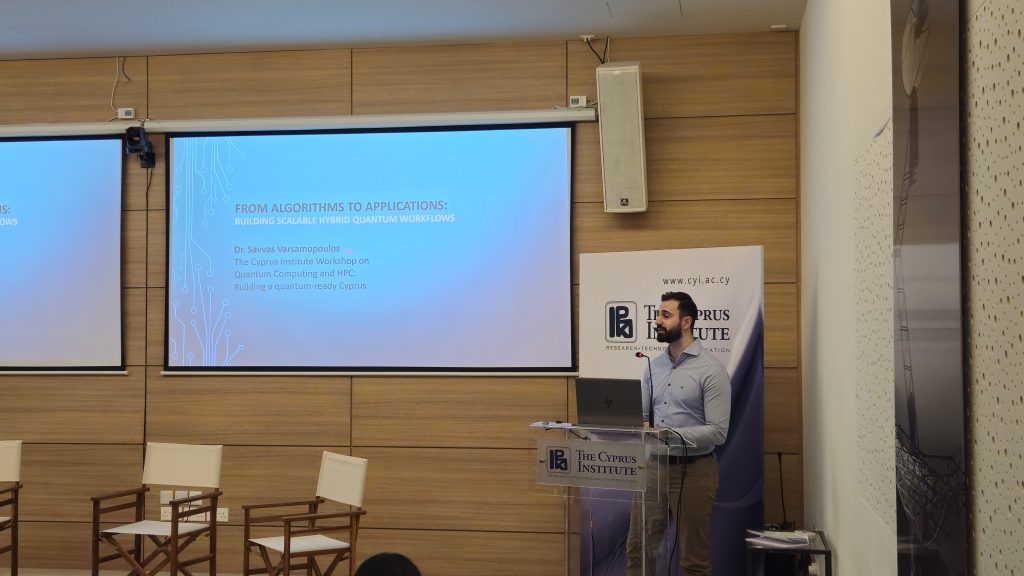
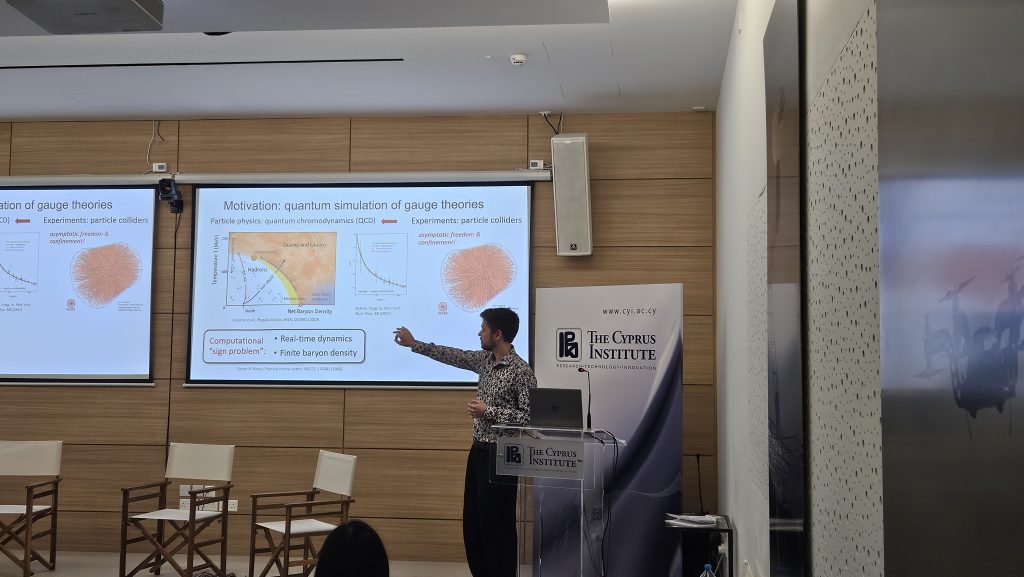
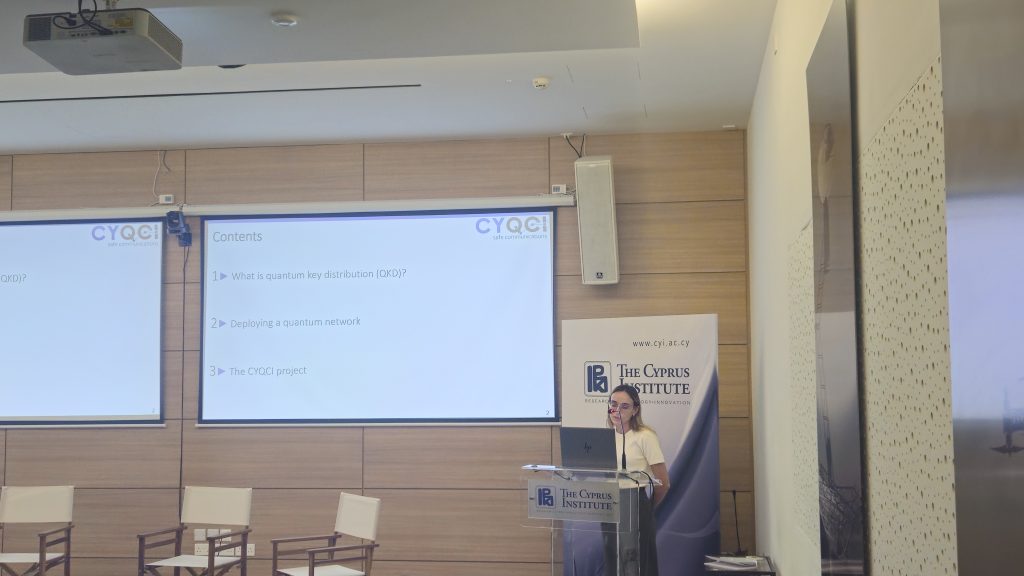
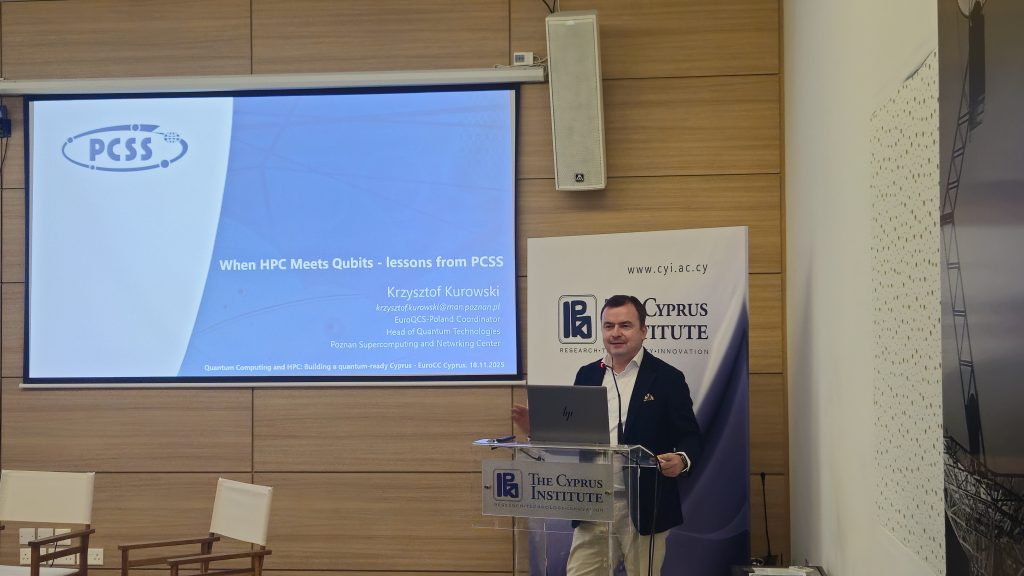
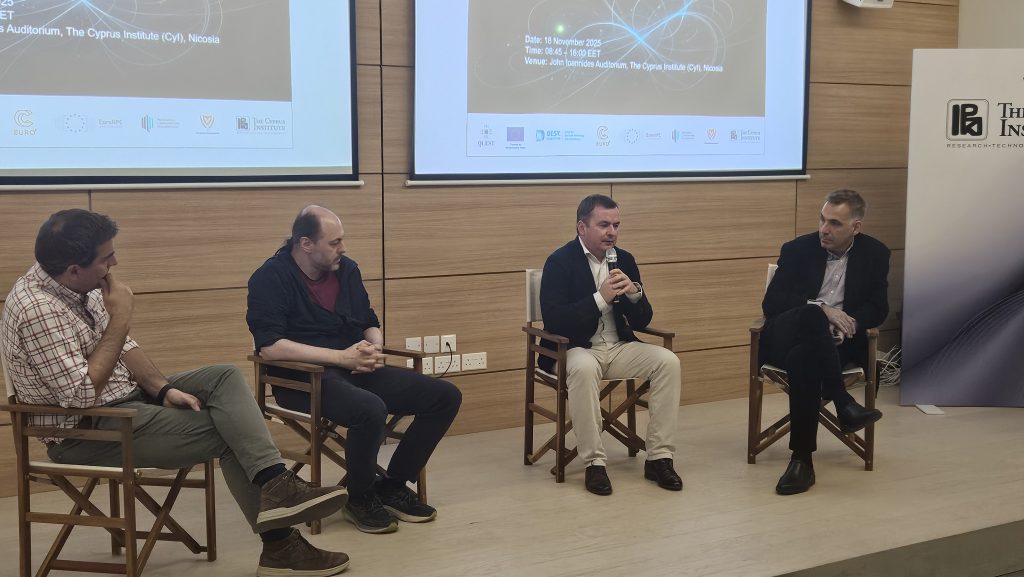
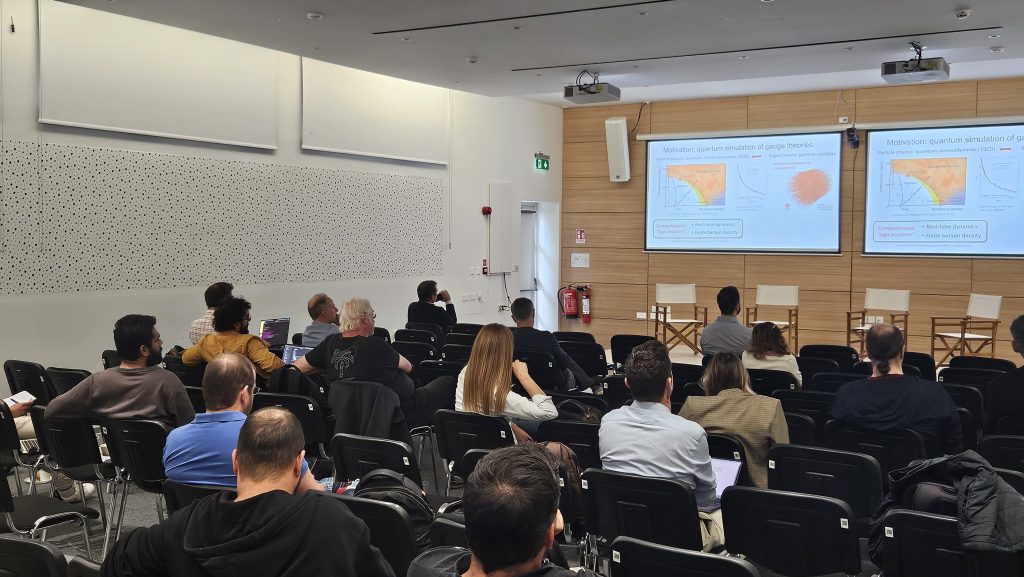
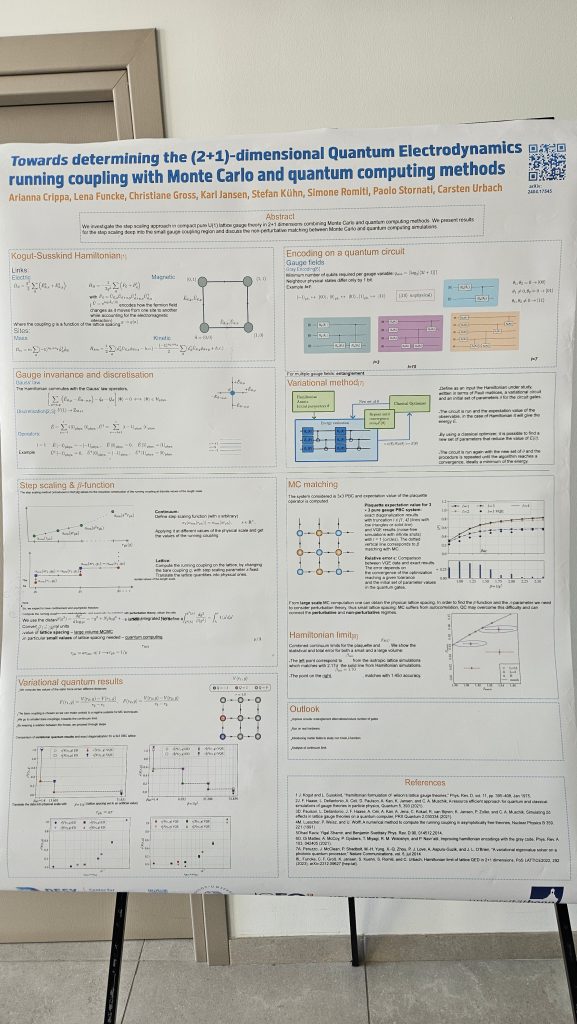
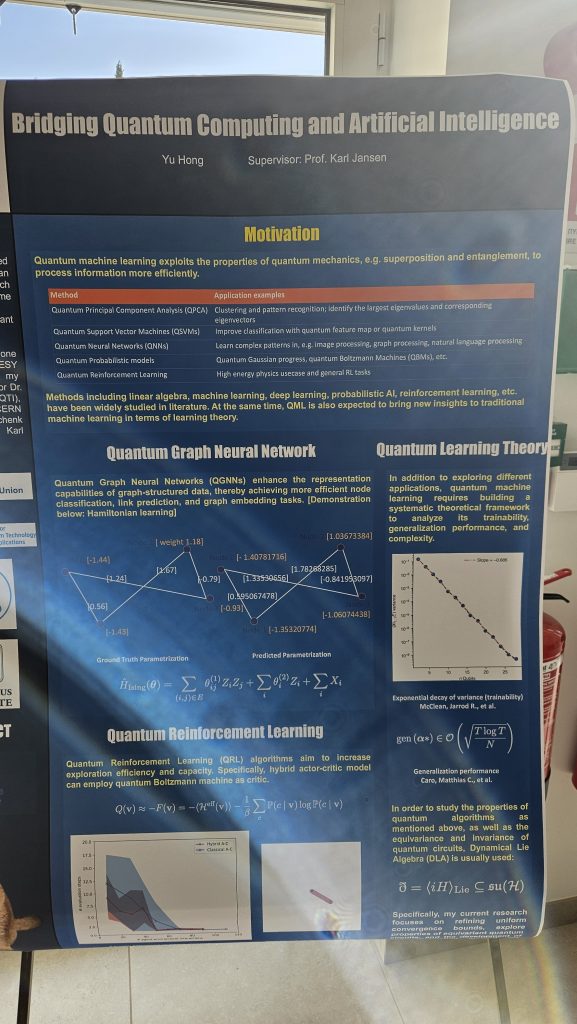
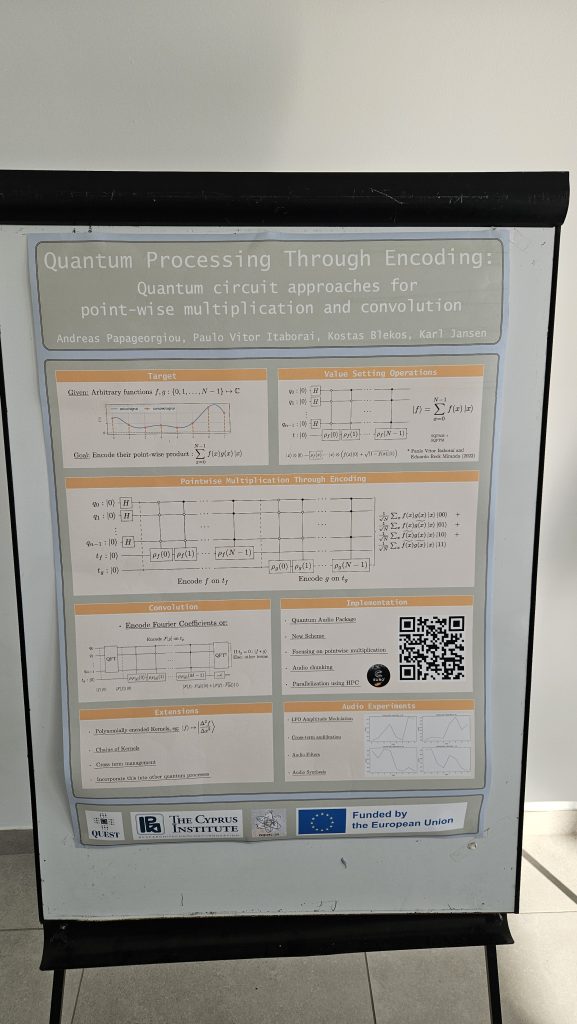
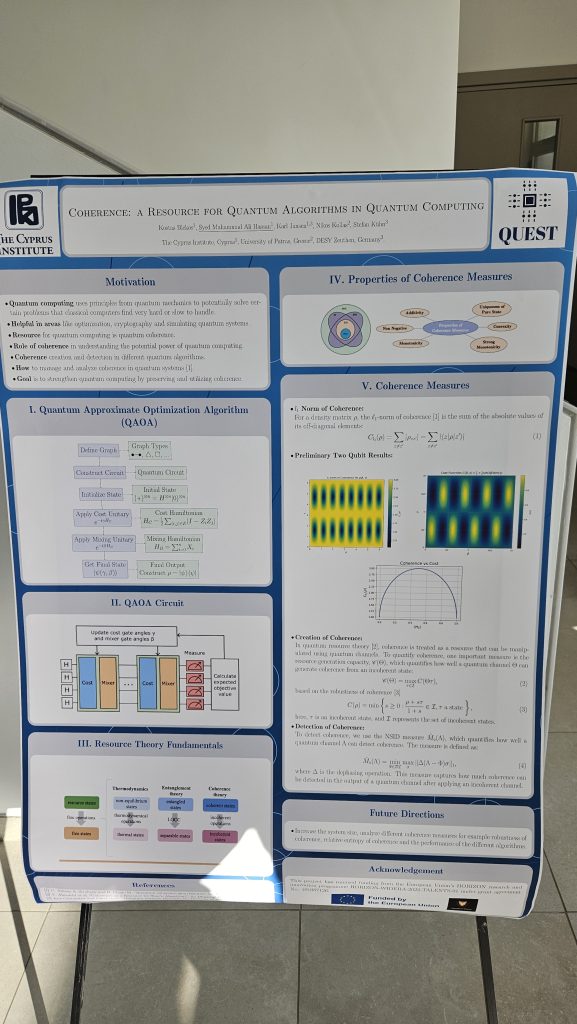
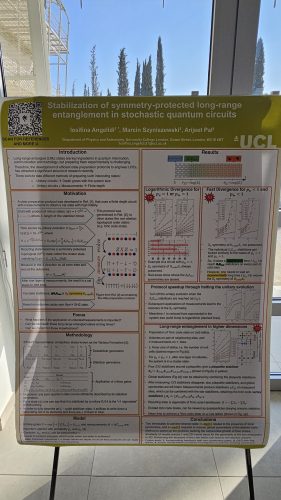
Organizations Participating:
